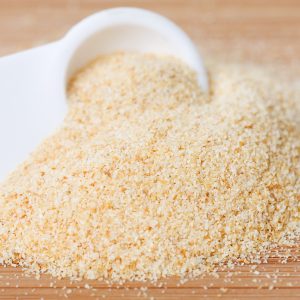
Is It Safe to Feed Garlic to Horses to Repel Insects?
Feeding garlic has long been touted to repel insects, but no scientific trials have been done to verify this claim. On the other hand, several studies have shown that garlic (and other alliums, plants in the onion family) contain the chemical n-propyl disulfide that can cause serious problems. N-propyl disulfide changes the makeup of the enzymes found in red blood cells. This change leads to a depletion of another chemical called phosphate dehydrogenase (PD), which protects the cell from oxidative damage. When the PD levels get low enough a bubble called a Heinz body forms on the outside of the cell. When these blood cells are filtered through the spleen they are recognized as damaged and are removed from the horse’s body. If enough red blood cells are damaged and removed it can cause a condition known as “Heinz body anemia.”
The toxic dose of n-propyl disulfide is not known. One study showed that horses fed 200 or more grams of garlic powder per day developed Heinz body anemia. Another study showed when horses were fed as little as 16 grams per day over an 83-day period, blood chemistry was altered.
The National Research Council states that feeding 7.5 grams of garlic powder per day should not lead to problems in normal circumstances. However, many vets feel the toxic effects of n-propyl disulfide may become a problem in horses that are fed these low doses on a regular basis. The resulting anemia may not be readily noticeable, but the horse can suffer from reduced stamina, lower energy levels, and a decreased resistance to disease.
In human research, when garlic oil was applied topically at a 1% dilution it had a 97% effect in repelling insects. Applying diluted garlic oil to your horse may be more effective and safer than feeding garlic.


